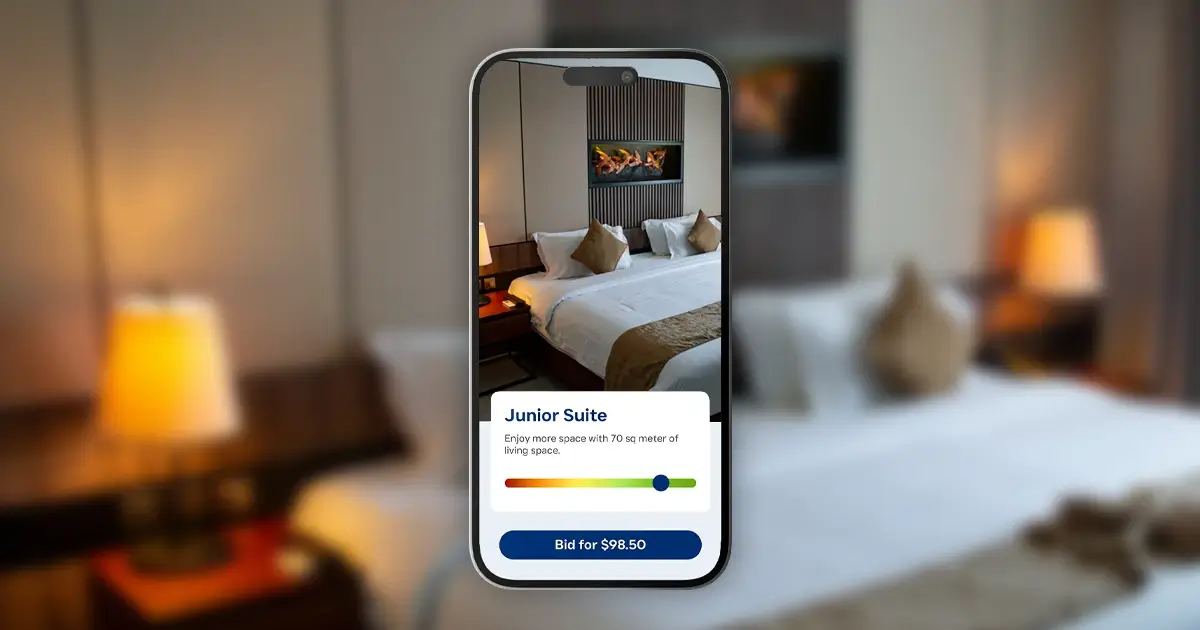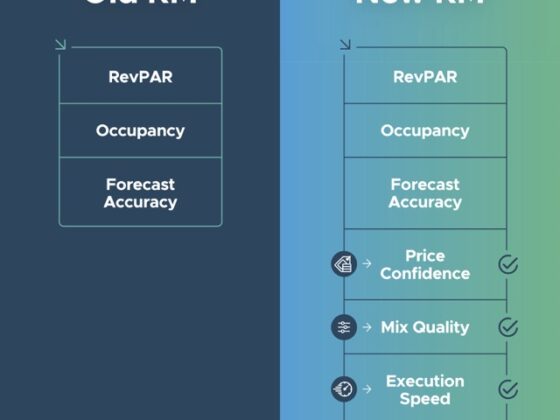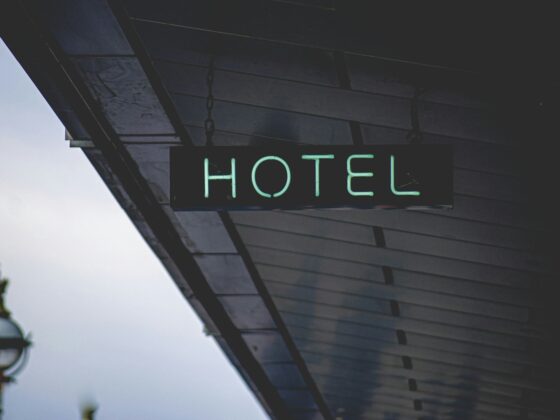
In 2025, upselling continues to evolve as a critical strategy for hoteliers looking to enhance guest experiences and maximize revenue. Upselling today is about anticipating travelers’ evolving needs, using technology to tailor experiences, and offering genuine value that enriches their stay.
Here, we explore some key trends that will be shaping the future of upselling this year and beyond.
1. Generational change: Evolving guest demographics
The shifting demographic makeup of travelers—particularly the growing influence of Millennials and Gen Z—requires hotels to adapt their upselling strategies. These generations are tech-savvy, value-conscious, and deeply interested in personalization. However, older generations, including Baby Boomers, continue to travel extensively, often with different expectations.
The key is flexibility. Hoteliers must leverage data to create tailored upselling offers that resonate with individual preferences rather than assuming one-size-fits-all solutions. Younger guests might appreciate app-based room upgrades, while older travelers could be more inclined toward personalized concierge services or accessible amenities.
2. Experiential travel endures: Beyond the tourist checklist
A growing number of travelers are seeking deeper, more meaningful connections during their stays. A 2024 report by Hilton found that 52% of Millenials prioritize exploration and adventure while traveling. This shift toward experiential travel presents a significant upselling opportunity, particularly in offering activities that allow guests to engage with local culture, cuisine, and traditions.
Upselling ideas could include curated cultural experiences, such as cooking classes with local chefs, guided historical tours, or private excursions to hidden gems in the area. For guests on longer trips or “slow travel” itineraries, multi-day experience packages that incorporate different facets of the destination can be especially appealing.
3. Rising room rates drive greater focus on ancillary revenue
Inflation and rising costs are squeezing room rate profitability, making ancillary revenue more essential than ever. Hoteliers are increasingly shifting their focus from Revenue Per Available Room (RevPAR) to Revenue Per Available Square Meter (RevPAM²), a metric that emphasizes the earning potential of every part of a property—not just the guest rooms.
This requires a fresh approach to how spaces are utilized. Underused meeting rooms can be reimagined as co-working hubs, outdoor areas can host seasonal pop-up events, and even parking lots can be converted into electric vehicle charging stations.
A strategic upselling approach ties these opportunities to guest preferences at the right time. For example, a business traveler might be offered discounted co-working passes or exclusive dining options, delivered seamlessly through automated upselling systems. When executed thoughtfully, these offers can boost revenue and elevate the guest experience by anticipating their needs.
4. The AI edge: Hyper-personalized upselling
AI is transforming upselling by making personalization both scalable and precise. By analyzing guest behavior, booking patterns, and real-time data, AI systems can suggest highly relevant offers—whether it’s a room upgrade or activity package—tailored to individual preferences.
For example, a business traveler may receive an offer for a premium room with workspace amenities, while a leisure guest might be offered a sunset cruise based on their interest in waterfront activities. The key is blending AI automation with a personal touch, ensuring that upsell offers feel thoughtful and curated, rather than robotic.
5. Hyper-contextual upselling: Intuitive offers at the right moment
In 2025, upselling will focus on offering what guests truly need, before they even ask. Hyper-contextual upselling uses data such as arrival times, weather, or booking history to present relevant offers at the perfect moment.
For instance, a jet-lagged guest could be offered early check-in, or a rainy day might prompt an offer for a cozy in-room dining experience. These offers aren’t just upsells—they feel like thoughtful service, seamlessly integrated into the guest experience. The result is upselling that feels natural, personalized, and genuinely enhances the stay.
6. Sustainable upselling: A win-win
Sustainability is no longer optional; it’s a priority for a growing number of travelers. Upselling eco-friendly options—such as green room upgrades, carbon-neutral travel packages, or dining experiences featuring locally sourced ingredients—not only generates revenue but also aligns with guest values.
For younger travelers, in particular, these options resonate deeply as they seek to combine their passion for travel with a commitment to the environment. A recent YouGov survey found that 47% of Gen-Z travelers worry about the environmental effects of their travel. Hotels that can authentically embed sustainability into their offerings will find both loyalty and revenue growth.
Final thoughts
In 2025, upselling will move progressively from a transactional approach to a more strategic, guest-focused one. By embracing personalization, sustainability, and technology, hoteliers can craft experiences that enhance both guest satisfaction and revenue. Upselling will no longer just be about offering more—it will be about creating meaningful, tailored experiences that truly resonate with guests.
How will your property elevate its upselling strategy in 2025?
About UpsellGuru
UpsellGuru is the leading provider of hospitality upsell solutions, dedicated to enhancing the guest journey and maximizing revenue for hotels worldwide. Their innovative programs optimize the upselling experience from pre-arrival, through on-arrival, to in-stay, seamlessly integrating proven strategies at every touchpoint. Trusted by over 1000 hotels globally, UpsellGuru delivers world-class technology, empowering properties to elevate guest satisfaction and profitability.



